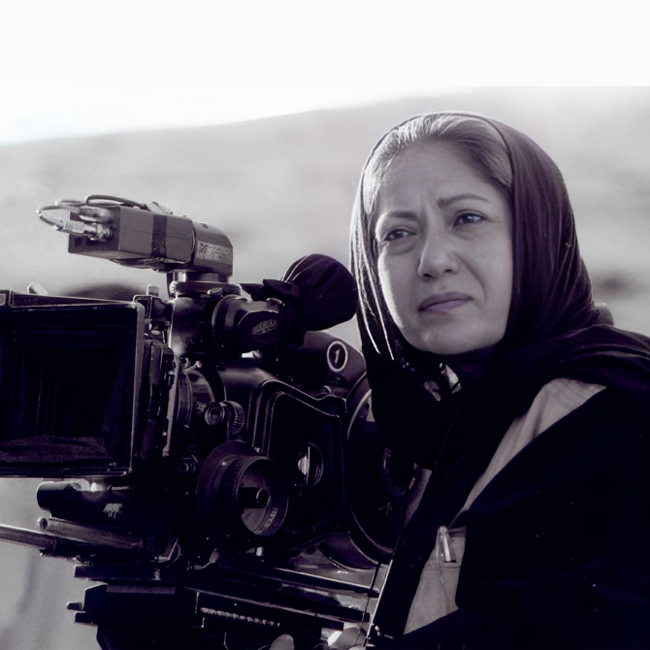
BIBLIOGRAPHY
Rakhshan Banietemad | Rakhshān Banī’iʿtimād | رخشان بنیاعتماد

Rakhshan Banietemad (born on April 3, 1954) is a film director and screenwriter. She studied cinema at the Faculty of Dramatic Arts in Tehran. In the 1970s, she worked as a production assistant for a couple of TV films. She began her career as a documentary filmmaker in the early 1980s and as a filmmaker in 1987 with Khārij az Mahdūdah (Off-Limits, 1988). The following year, she made Zard-i qanārī (Canary Yellow, 1989). In 1991, she co-wrote and directed Nargis, which won her the Best Director award at the 10th Fajr International Film Festival. Banietemad continued her success with subsequent films such as The Rūsarī-i ābī (Blue-Veiled, 1995), Bānū-yi urdībihisht (The May Lady, 1998), Zīr-i pūst-i shahr (Under the Skin of the City 2000), and Khūn’bāzī (Mainline, 2006), each of which garnered critic’s acclaim and awards. Banietemad has won numerous awards for her works, including the Golden Leopard for Best Director at the Locarno Film Festival, the Silver Bear for Best Director at the Berlin Film Festival, and the FIPRESCI Prize at the Thessaloniki Film Festival. She is also a member of the Academy of Motion Picture Arts and Sciences.
Banietemad’s early television work, producing documentaries addressing social issues, propelled her transition to creating realistic feature films. This shift enabled her to critique Iranian societal issues, and use her experiences to infuse her films with socially rooted themes, particularly focused on social and economic issues. In her narratives, female protagonists navigate the lives of society’s outcasts and marginalized individuals, portraying challenges through compelling and dramatic storytelling and character development.
